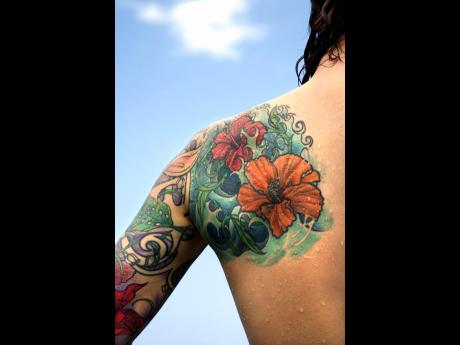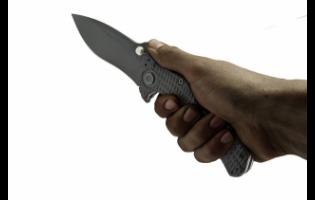Tattoo artists want industry to be regulated …Research findings say some inks cause cancer
• Research findings say some inks cause cancer
In light of new research findings coming out of the United Kingdom which indicate that some tattoo inks can cause cancer, some Jamaican tattoo artists are imploring the authorities to pay closer attention to the budding industry, and for persons wanting to get inked to be more vigilant.
According to a 2016 report published by the Publications Office of the European Union, titled 'Safety of Tattoos and Permanent Make-up', over 60 per cent of the colorants used in tattoo inks are azo pigments, some of which can release carcinogenic (cancer causing) aromatic amines.
The European Chemical Agency is set to publish a detailed report outlining which chemicals found in tattoo inks pose the greatest risk, although red inks were described as the most dangerous.
Wahwah, a tattoo artist who operates in Ocho Rios, St Ann, told THE STAR that he is perturbed by the findings and is eager to get a hold of the list of carcinogenic chemicals found in the inks, to ensure he is not using any of them on his clients.
"The other day, I saw a picture on Facebook where the same red ink swell up the person's hand. The skin got a really big lump where the tattoo was," Wahwah explained.
"I've seen it happen before in real life, too. This guy in St Mary who I was introducing my work to, he showed me what the same red ink do to his hand, so from dem times deh, I decided to stay away from colours."
He explained that he mostly works with black ink because he has come across many questionable coloured inks during his practice.
"You have some companies that produce some really cheap, bad ink and not all the colours are really 100 per cent safe," Wahwah said.
In light of the new findings, the artist is calling for more regulation on Jamaica's tattoo industry.
"They don't license tattoo artists in Jamaica. It's like a hobby business in Jamaica. The system nuh really provide much fi we. If you want to take your money and buy a tattoo gun, you buy a gun and call yourself a tattoo artist," he shared.
RESEARCH
He added that a great deal of research must be done by persons before getting a tattoo. "Don't just jump to things and follow people. Research on the artist, check how he operates, check if he sterilises his tools, check what products he uses, and so on," he urged.
Fellow tattoo artist Phillip Shaw was somewhat in agreement with Wahwah, while stressing that he is very cautious of the types of products he uses on his clients.
"I wouldn't knock that [tattoo regulation] at all, although I don't really know of any major threats in the inks that I use. The only ink that I really know of that might have something cancerous is the ultraviolet ink that glows. Personally, I don't use those at all," said Shaw, who operates out of Kingston.
He also noted that persons should always research whatever they are about to put their bodies through to ensure their own safety.
Despite the new information coming out of the research, tattoo artist Candice Davis, who operates in St Andrew, said she is not convinced by the findings.
"I doubt that strongly. We have been getting tattoos for year upon years, and how many times have you heard persons saying they have skin cancer as a result of tattoos?" she questioned, noting that the tattoo and piercing industries are often unduly demonised.








































